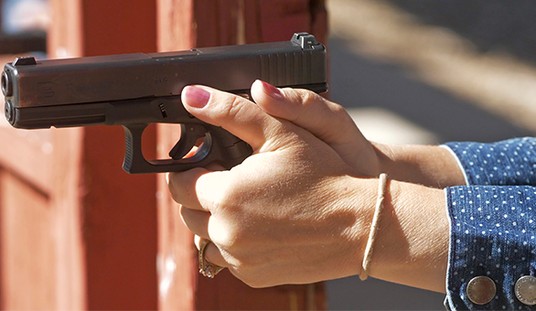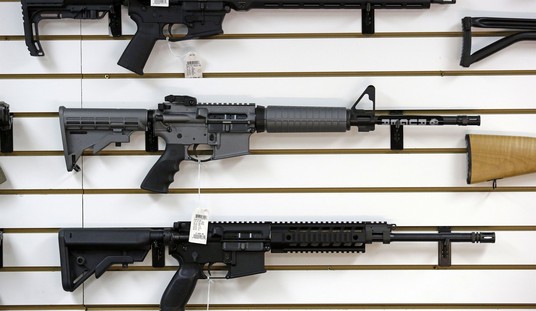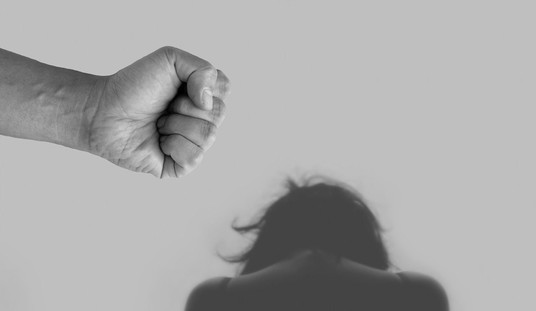The mayor of the San Diego suburb of El Cajon, California is speaking out publicly against Gov. Gavin Newsom’s decision ordering “non-essential” businesses to close. The order seems to be being implemented on a county-by-county basis, and many of the states most populous counties are taking the position that gun stores aren’t essential businesses.
In San Diego County, supervisor Nathan Fletcher, the only Democrat on the county board of supervisors, has said that gun stores aren’t essential businesses and should close. El Cajon Mayor Bill Wells, a Republican, on the other hand, talked with KUSI-TV in San Diego and that forcing gun stores in the state to close isn’t wise.
Wells says the guidelines for what’s considered an “essential business” are very vague, and that a lot of businesses are unclear as to what their status is.
The mayor says he wants gun stores in his city to be clear: he’s not shutting down any retailers unless they’re not maintaining social distancing.
“For us, I think the issue is not so much what kind of thing you sell but how many people are coming into your store and what the level of contamination is. So we’re really not wanting to politicize this, and when a politician focuses on the fact that there’s a certain kind of thing that they don’t like, which are gun stores, and they say that particular type of store should close, and they don’t talk about anything else, and it just so happens that that kind of store is protected by the U.S. Constitution and the Second Amendment, it’s problematic.”
Wells argues that by declaring gun stores non-essential, politicians are politicizing a constitutional right and diminishing it at the same time. It’s not just that anti-gun politicians aren’t letting a crisis go to waste, says the mayor, it’s that their actions are exacerbating the crisis.
“This is life and death. This is the biggest thing we’ve seen in my lifetime. You don’t make everything political. Some things are above that.”
When the KUSI anchor pushed back and asked if guns aren’t a “luxury item” right now, Wells was ready with a response.
“Look, you take a look at the gun store in El Cajon. They work with the sheriff’s department, they work with several different police departments, they do gunsmithing, they sell safes, they sell ammunition. All of those things are really important. There’s been a lot of violence and crime that’s popping up since this problem began. People feel that it’s their constitutional right to protect themselves, and I can’t disagree with them.”
Wells noted that he did talk to pastors in El Cajon and asked them to cancel services so that thousands of people weren’t congregating together in close proximity, despite supporting the free exercise of religion as much as he supports the right to keep and bear arms. It’s not just that gun stores are an essential business, in other words. How they do business also matters, and Wells says that as long as any establishment is willing to take the necessary social distancing measures, he doesn’t want to see them shut down.
Compare that attitude to what we’re seeing from Pennsylvania Gov. Tom Wolf, who’s declared that gun stores are non-essential businesses and must shut down. Wolf is actually reconsidering his order shutting down the state’s liquor stores, but gun stores are out of luck.
“We are looking at that very seriously,” Wolf said. “I’m trying to understand the thinking in other states. On the one hand, this can be considered a nonessential function. On the other hand … this sometimes gets to be a health issue for those with a substance use disorder.”
Pennsylvania is the only state nationwide to close liquor stores, according to Chris Swonger, CEO of the Distilled Spirits Council of the United States. The PLCB bans spirits sales outside of bars, restaurants and the state stores, so the shutdown leaves customers with virtually no access to alcohol beyond wine and beer.
Wolf should look at what other states are doing when it comes to gun stores too, because Pennsylvania is one of just a few states that have declared gun stores are non-essential. Even Democrat-controlled states like Illinois, Connecticut, and Kentucky are keeping their gun stores open.
As for California, where Gov. Gavin Newsom is leaving it up to local authorities to decide whether or not gun stores are deemed essential, I spoke to California Rifle & Pistol Association President Chuck Michel, who’s asking California gun owners to contact the CRPA if their local police or sheriff decide that gun stores shouldn’t be open for business. The CRPA has been reaching out to law enforcement around the state to talk with them about the importance of keeping firearm retailers open during the declared emergency. Michel says the group has had some success in doing so, though the city of San Jose and Alameda County have ordered gun stores to shut down and threatened to fine the stores if they don’t comply.
Things are dire enough right now without politicians making it worse by provoking a constitutional crisis over the deprivation of Second Amendment rights. El Cajon’s mayor has the right idea, and so far it’s the position adopted by most jurisdictions around the country. Let’s hope it stays that way, and it wouldn’t be a bad idea to contact your city council member or county official to let them know any restriction on the right to keep and bear arms should be off the table.









